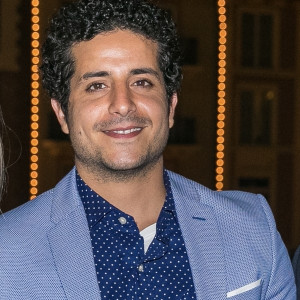Before getting started, let's play a brief game! Take some time for yourself and decide if the following benefits of learning French or any other language are true or false. You are going to be surprised!
- People who speak multiple languages develop different personalities.
- Speaking different languages reduces the risk of dementia and Alzheimer's disease.
- Speaking multiple languages makes you smarter.
- Speaking multiple languages increases the size of your brain.
- It is easier for you to become a billionaire when you speak multiple languages.
- French is the language of love.
Believe it or not, all the previous statements about learning a new language are TRUE (or almost all). Eager to know why? Well, before delving into all the benefits that learning French can bring you, let's first discover together all the advantages of learning any foreign language.
Are you ready to discover the reasons to learn French and become bilingual right away? Put that brain to work and let's go for it!
You can search for different french lessons in Calgary here.
-

"Start learning French in any Canadian city." Source: Andre Furtado, Pexels.

What are the benefits of learning a new language?
Be prepared to let this informative article blow your mind! Let's review each of the following fun facts so that you know all the benefits of acquiring a new language as soon as possible:
- People who speak multiple languages develop different personalities.
Although it is still a controversial subject, some studies affirm that language determines how we perceive the world, our way of being, and our behavior. For this reason, speaking a second language will allow you to access the perceived cultural norms associated with it, thus activating behavioral expressions of personality that are appropriate in that linguistic-social context. Complex? Quite a bit! In a few words, when you use a foreign language, you will have different behaviors that generally will not stand out when speaking your mother tongue, cause they will not adapt to the same context. Perhaps while speaking French, for example, you become a little more refined and elegant with the expressions you use, since we generally associate it with sophistication. On the contrary, when you speak your mother tongue, you may be much less refined.
When you learn a new language, you are not only going to memorize the conjugations of the verbs, the new vocabulary, and different grammatical rules, but you will also assimilate new cultural values and new behaviors that can shape your personality. That is how it works! Learning a new language will give you more psychological and social benefits than you could ever imagine. Ready to shift your bilingual personalities?
- Speaking different languages reduces the risk of dementia and Alzheimer's disease.
According to Ellen Bialystok, a psychologist at the University of York in Toronto, Canada, a bilingual brain could better protect itself against Alzheimer's and dementia. After studying 102 bilingual patients and 109 monolingual patients, both previously diagnosed with Alzheimer's disease, Bialystok and her colleagues found that bilingual patients were diagnosed on average four years later than monolingual patients. These suggest that using more than one language may help to maintain cognitive functions and better mental capacity, even when both diseases are already in advanced states.
Having a bilingual brain will not only allow you to be more social and empathetic, but it will also reduce the risk of suffering from these degenerative diseases. Learning a second foreign language is like brain gymnastics! The best way to keep your brain in shape!
- Speaking multiple languages makes you smarter.
This does not mean that a monolingual brain is not as smart as a bilingual brain. However, acquiring new languages is an activity that will speed up your logical reasoning giving you the possibility of performing demanding tasks with better success, such as planning, problem-solving, multitasking, and better rational decision-making. Learning a new tongue also upgrades mental processes such as memory, orientation, and attention.
Bilingualism also improves neural capacity, which could explain why the bilingual brain has better cognitive abilities, compared to the monolingual brain. However, more neuroscientific research is needed to know if speaking more than two languages is related to a higher IQ. In the meantime, if you want to keep your mind sharp, studying French is one of the best ways to accomplish it! On y va!
- Speaking multiple languages increases the size of your brain.
Are bilingual brains bigger compared to monolingual ones? In a way, yes. Bilingual brains have a higher density of white matter, tissue made up of millions of nerve fibers that connect parts of the brain and the spinal cord, and that is in charge of improving the speed and electrical transmission of nerve signals. A bilingual person uses more brain areas when accessing the second language, stimulating different regions in the human brain and increasing the density of white matter. We could say that a bilingual brain has to make many more roads for all centers to communicate better in comparison with a monolingual brain.
Also, bilingualism is associated with the enlargement of the hippocampus and certain regions of the cerebral cortex. Why? Let's go to a brief scientific explanation. The hippocampus is the area of the brain responsible for processing, storing, and accessing memories. It is your brain file center. Every time you learn a new language, the hippocampus creates another storage folder. A polyglot person -or a person who can use several languages- needs many storage folders that will take up space, and more neural connections to access the information. So we could say that yes, a bilingual brain could be structurally larger than a monolingual one because all these stimulations provoke neural growth.
- It is easier for you to become a billionaire when you speak multiple languages.
Becoming a millionaire is controversial and depends on many factors, such as having a privileged family, having good connections, being lucky, working really hard, or maybe winning the lottery. And perhaps for some of us, it is considered a little difficult to achieve, but never impossible.
Although becoming a millionaire many times depends on external factors that most of the time we cannot control, we must consider that bilingualism could have great economic benefits for us. Bilingual people find greater opportunities when enrolling in higher education, and later the possibility of finding better job offers. Speaking multiple languages opens up a world of academic and professional possibilities. The bilingual generations that enter the labor market tend to be more easily hired by international companies that normally operate in globalized markets, and where knowing multiple languages is often more appreciated and necessary.
Perhaps, becoming a millionaire is not a direct consequence of bilingualism, but it is going to provide you greater professional success and enrichment of your personal life. And remember, money is not synonymous with happiness!
- French is the language of love.
French is considered today as the world's most romantic language. In 2015, the language learning app Babbel surveyed nearly 14,000 users to find out which languages were considered the most romantic. For non-Francophone users, French ranked first as the language of love with 34% of the votes, ahead of Spanish and Italian. And also, the French accent was perceived as the most romantic and attractive! Latin languages lead the ranking, however, French is the winner. Ready to join this irresistible percentage? If you were waiting for a signal, this is it! C'est vraiment incroyable!
Start to learn French online here on Superprof.

Learning French, is it worth it?
Did you know that French is the second most studied language after English and the ninth most widely spoken? More than 200 million people are francophones across the five continents, and the countries with the highest number of francophones after France are Canada, Switzerland, Belgium, and Africa. For these reasons, studying French is not such a bad idea!
French is the official language of the United Nations, the European Union, the United Nations Educational, Scientific and Cultural Organization (UNESCO), and the International Red Cross, among others.
Also, if you are planning to start your path towards polyglotism, studying French could be the starting point for you to learn other languages, especially the Latin ones such as Spanish, Italian, Portuguese, or even Romanian.
Learning French in Canada? Know the advantages!
As you probably already know, Canada has two official languages, English and French. English is the most widely spoken language throughout the country, however, French is the main language of Quebec, other areas of Ontario, New Brunswick, and Manitoba, and other Francophone communities can be found throughout the Canadian territory. As you may realize, speaking both English and French can give you many benefits, such as:
- Better career options. If you are interested in working as a translator or interpreter, in hospitality or tourism, in politics or the education sectors, learning French would be an essential skill for you to find the perfect job.
- Better academic opportunities. According to the Association des Collèges et Universités de la Francophonie Canadienne (ACUFC), the country offers great francophone and bilingual education at many colleges and universities in Quebec, Alberta, British Columbia, Manitoba, New Brunswick, Nova Scotia, Ontario, Prince Edward Island, and Saskatchewan.
- Access to all public services. According to the official site of the Government of Canada, public offices and facilities must provide their services in both, English and French. Embassies, consulates, and health, safety, and security facilities must bring bilingual support for everybody.
- Better social opportunities. Canada has a population of almost 38 million people and 22.8% are francophones! The majority of French speakers live in Quebec, but almost 10.4 million Canadians can have a conversation in French. Are you ready to boost your popularity? C’est le fun!
Moreover, did you know that French and English have a bunch of similarities?! Unbelievable!

Where to learn French in Canada?
As their second most spoken language in Canada, there are many ways to learn or practice French. We are going to give you here some official places to learn the French language:
- The government of Quebec: offers face-to-face French classes but also online lessons for intermediate and advanced levels. You can find full-time courses, part-time, or even specialized courses in specific working fields.
- The University of Toronto: also offers face-to-face and online French courses to improve your vocabulary, grammar, and pronunciation. They generally last six months, and upon completion of the course, you receive a certificate of attendance.
- The Alliances Françaises: The Alliances Françaises are attached to the French Embassy and Campus France and they generally offer French courses for all beginner, intermediate, and advanced levels. Across Canada, there are nine French alliances located in Victoria, Vancouver, Calgary, Edmonton, Winnipeg, Toronto, Ottawa, Moncton, and Halifax.
- AEFE schools (Agence pour l’enseignement français à l’étranger): educate more than 7,000 students in Canada per year and their system is regulated by the French education standards. The AEFE schools are focused on diversity, pedagogical innovation, and language learning. They are the Lycée Claudel in Ottawa, the Collège Stanislas in Québec, the Collège Stanislas and the Collège International Marie de France in Montreal, the Lycée Français de Toronto and the Toronto French School, the Lycée Louis Pasteur in Calgary, and the École Française Internationale Cousteau in Vancouver.
Start to French courses Montreal here on Superprof.

Which are the best French language tests?
According to the official website of the government of Canada, several tests are widely accepted to certify French language proficiency:
- The Test d'Evaluation de Français (TEF): It is a recognized certification that measures the knowledge and competencies in French. This exam is issued by the Federal Government of Canada and the Ministry of Diversity and Inclusion of Quebec. It is made of four different modules which evaluate oral and written comprehension.
- The Diplôme d'études en langue française (DELF): The Diploma of French-language studies is an official certification issued by the French Ministry of Education and the Common European Framework of Reference for Languages. It assesses listening, reading, writing, and speaking skills.
- The Diplôme approfondi de langue française (DALF): This diploma is an official certification also issued by the French Ministry of Education. It certifies the French skills of foreign candidates with advanced levels of French (C1 - C2). Generally, the DALF certification is mandatory to access the French universities, and it assesses oral and written comprehension and expression skills.
- Test de Connaissance du Français (TCF): is a French proficiency test aimed primarily at international students. It is issued by the Center International d'études Pedagogiques (CIEP) of the French Ministry of Education. It is a multiple-choice test that evaluates reading comprehension skills, grammatical structure, and listening.
These French certificates are useful in diverse circumstances, such as pursuing a program abroad, demonstrating your language skills when applying for a job, or even getting citizenship. For these reasons, we encourage you to obtain a French language certificate as soon as you feel ready for it. It is worth it! Just remind that since most of the language certificates have an expiration period, it's recommended for you to continue updating your knowledge and language competencies. And of course, do not forget to add it to your CV!
The best apps to learn French
Today, you can easily start studying French with your phone anytime and anywhere. When you have free time while taking public transport, when you are bored, or 5 minutes before going to sleep can be a great moment to brush up on French. The learning apps provide you with a large amount of multimedia content always available which makes your study easier and more fun.
The learning apps we recommend to you the most are:
- Duolingo is one of the best learning apps to practice, including French of course. It offers short lessons to learn vocabulary, grammar, conjugation, writing, and pronunciation, especially for beginners. It's a fun, easy-to-use app with interactive exercises that provide instant feedback. Duolingo works on Android, iPhone, iPad, Mac, and Windows devices.
- Babbel is a French learning app for improving and practicing your vocabulary. In addition, Babbel provides French cultural information perfect for travelers. Through Babbel, you can practice your French with games and easy lessons.
- Memrise is a learning app where you can easily practice French to improve your vocabulary, pronunciation, and your listening skills. With Memrise you can start communicating in French as soon as possible!
- Busuu is another great learning app to practice your listening, reading, writing, and speaking skills, as well as your vocabulary in French. Busuu French has active users that will help you practice French most interactively.
You can discover french classes near me in Kelowna here.
-

"Applications on your device can help you learn French." Source: JESHOOT-com, Pixabay.
Learning French online, is it possible?
Learning French successfully requires constant reinforcement, communication, motivation, and also identifying the mistakes we made in order to improve during the process. The French language is not hard to learn! All of this will be much easier if you have the support of a private French tutor. For this reason, if you want to improve your French competencies more effectively and find the right tutor for you, take a look at the official Superprof platform online! Here you can find over 1600 tutors available in Canada who can teach you French, as well as many other languages, such as Spanish, Italian, and even Arabic. Bienvenido and Benvenuti!
Depending on what you need and your location, you can choose face-to-face lessons or online lessons. You can easily adapt your French lessons to your weekly schedule, decide to go at your own pace, and get the most personalized experience. Studying has never been so flexible as now! Through Superprof you can find the best private French tutors in Toronto or anywhere in Canada no matter why you want to learn French. If you have plans of traveling, of improving your language proficiency to get more job opportunities, if you want to follow a master program taught in French, or even prepare for the DALF and TCF certifications, you can get all the help you are looking for and more with Superprof! Whether you have a basic knowledge of the language or a more advanced level, and regardless of your age, with Superprof you are going to find the ideal online private tutors for you to learn French.
From the comfort of your room, it does not matter if it's freezing outside or not, you can start practicing your French whenever you want. And it is really easy to start! Follow the next steps:
- Go to the Superprof platform,
- Enter that you want to practice "French",
- Do not forget to introduce the city where you are located to get more specific results, for example, "Toronto".
- Enjoy right away having access to thousands of profiles of registered tutors that teach French.
- Click on the one that catches your attention the most. Like this, you will know all the tutor's backgrounds, professional careers, and certifications.
- Click on the option "Book a class",
- Et voila! C'est tout les amis!
Also, we know that private language lessons tend to be a bit higher in price in comparison with lessons at school, for example. However, on the platform, you can choose the perfect tutor for you that best suits your budget, since you will have the option to compare the rates offered by each one of them. The rate per French class varies depending on the city. However, some tutors may offer a lower price per lesson if you decide to take several lessons with them. Having a good exchange with a private tutor is the key to success during your bilingual process. For this reason, the vast majority of Superprof tutors offer their first lesson for free so that you can select the one with whom you feel the most comfortable.
In addition, if you are also curious and want to get to know all about the French culture, on the platform you can not only improve your French Canadian but also immerse yourself in French culture and learn about their gastronomy and pastry. Oh-la-la!
Are you ready to acquire all the advantages of having a bilingual brain and being part of the exclusive percentage of francophones with an attractive accent? Well, practicing French online has never been easier. Find the best private tutors with Superprof in Canada and achieve your bilingual goals! Are you eager to start right now? We dare you!

Summarize with AI:
















